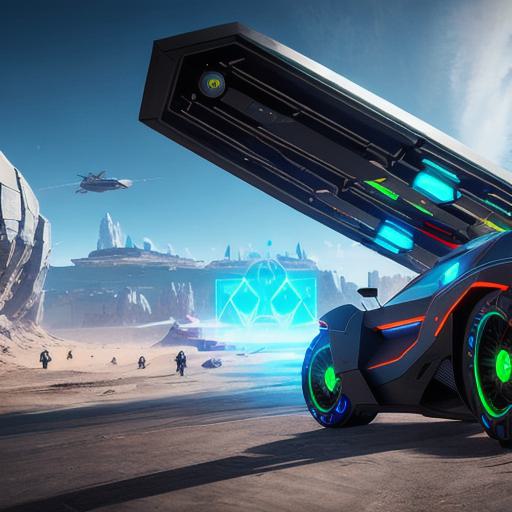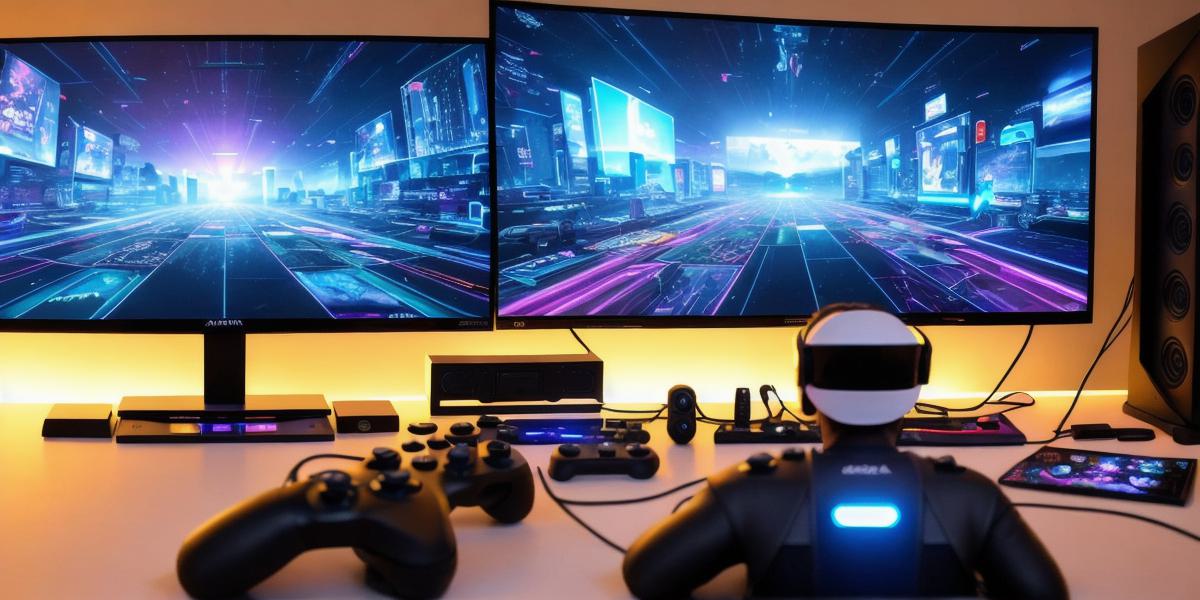Gaming has come a long way from its early days as a simple parlor game, and now it’s one of the most popular forms of entertainment in the world. With blockchain technology, gaming is about to take its next big leap. In this article, we’ll explore how blockchain is revolutionizing gaming by creating new ways for players to engage with games, transact securely, and own their game assets.
Blockchain technology has a lot to offer the gaming industry, from increased security and transparency to new revenue streams and player experiences. One of the biggest advantages of using blockchain in gaming is that it allows for decentralized ownership of game assets. This means that players can now securely own their virtual goods and collectibles, which they can trade with other players or sell on the open market.
Blockchain technology also enables secure transactions within games. With blockchain-based payment systems, players can make purchases without worrying about fraud or chargebacks, and game developers can receive payments quickly and efficiently. This creates a more trustworthy and secure environment for gaming, which is essential in an industry that has historically been plagued by fraudulent transactions.
Another way blockchain technology is changing the gaming landscape is through new revenue streams. With blockchain, players can now earn cryptocurrencies as they play games, which can be used to purchase in-game goods or traded on cryptocurrency exchanges. This creates a new economy within games, which can generate significant revenue for game developers.
But perhaps the most exciting aspect of using blockchain technology in gaming is the ability to create new and innovative game experiences. With smart contracts and decentralized applications (dApps), game developers can now create games that are more engaging, interactive, and customizable than ever before. Players can also participate in decision-making processes through governance tokens, which give them a say in how the game is developed and run.
To see blockchain technology in action, let’s look at some real-life examples. One of the most well-known examples is CryptoKitties, a blockchain-based game that allows players to breed and collect unique digital cats. The game has generated millions of dollars in revenue and has even been featured on CNN.

Another example is Decentraland, a virtual reality (VR) platform built on blockchain technology. Decentraland allows users to create and own their own VR experiences, which can be shared with others or monetized through advertising and other means.
In conclusion, the future of gaming is here, and it’s powered by blockchain technology. Whether you’re a player or a developer, there are endless opportunities to engage with games in new and innovative ways. As the technology continues to evolve, we can expect even more exciting developments in the world of gaming. So, whether you’re ready to take on your next adventure or create your own game, the time to explore blockchain-based gaming is now.
FAQs:
Q: What is blockchain technology?
A: Blockchain is a decentralized digital ledger that records transactions securely and transparently. It allows for secure ownership of digital assets and new revenue streams within games.
Q: How does blockchain technology change the gaming landscape?
A: Blockchain enables secure transactions, decentralized ownership of game assets, new revenue streams, and innovative game experiences through smart contracts and dApps.
Q: What are some real-life examples of blockchain-based games?
A: CryptoKitties and Decentraland are two well-known examples of blockchain-based games that have generated millions of dollars in revenue and created new ways for players to engage with games.
